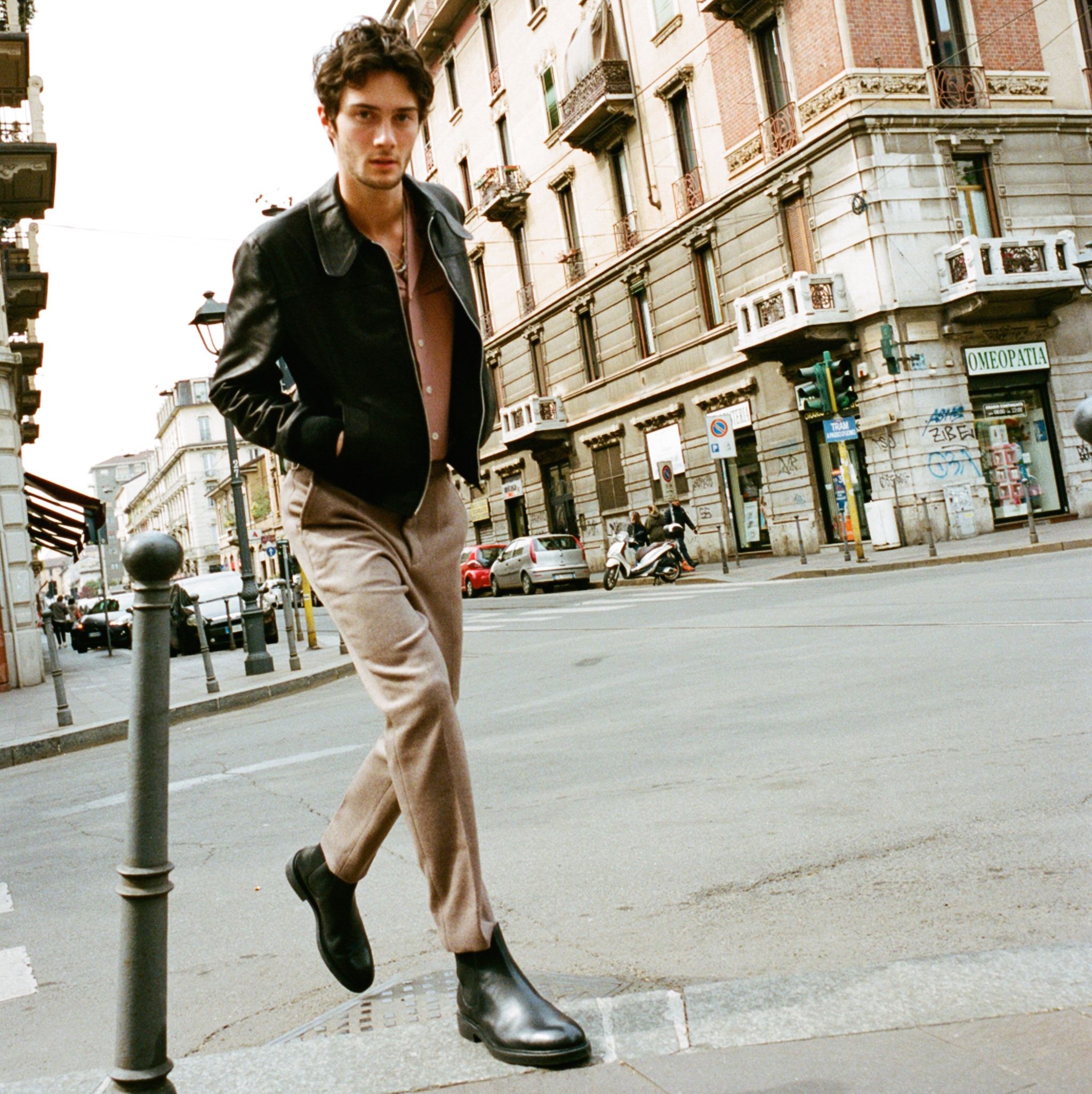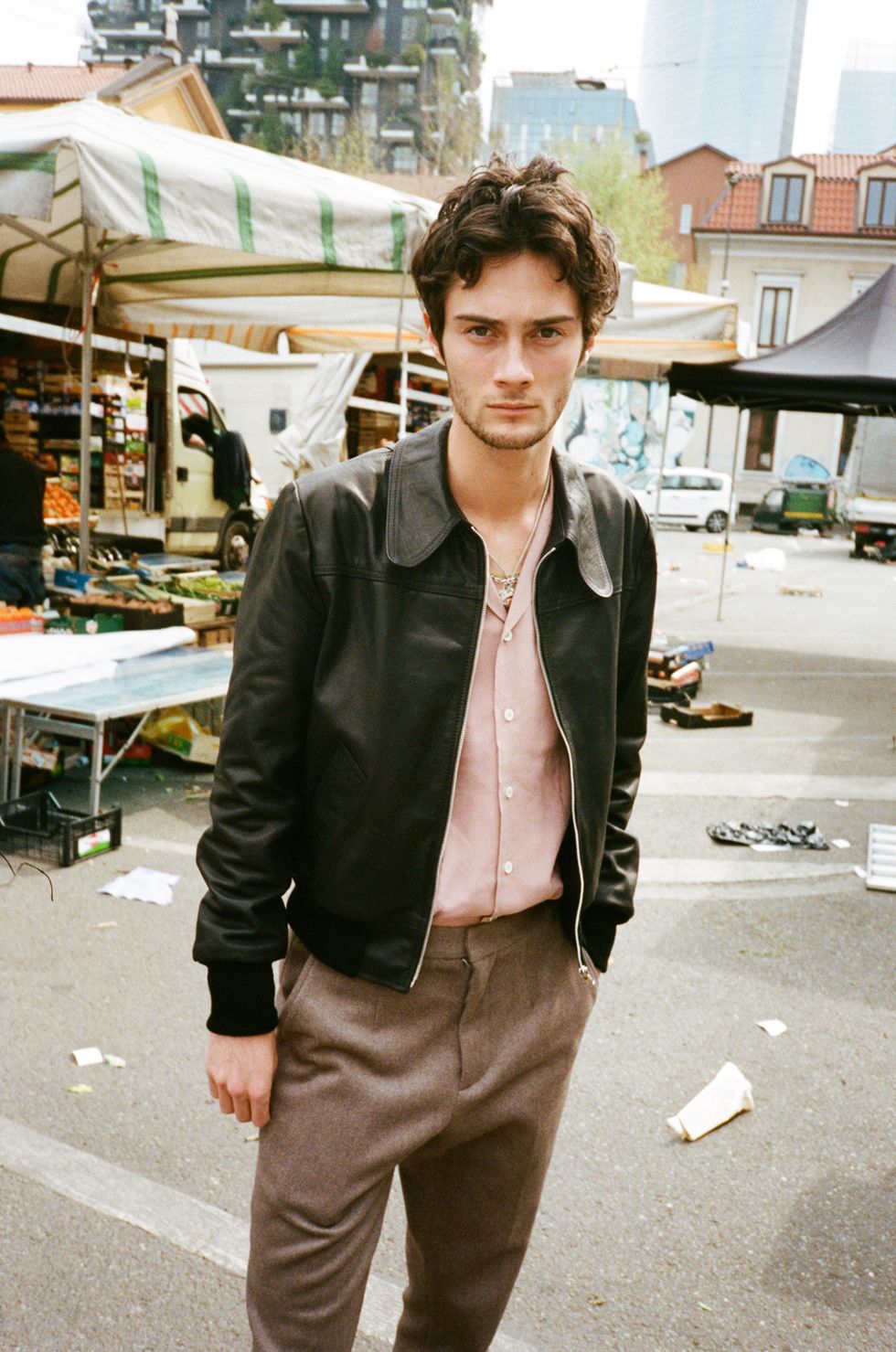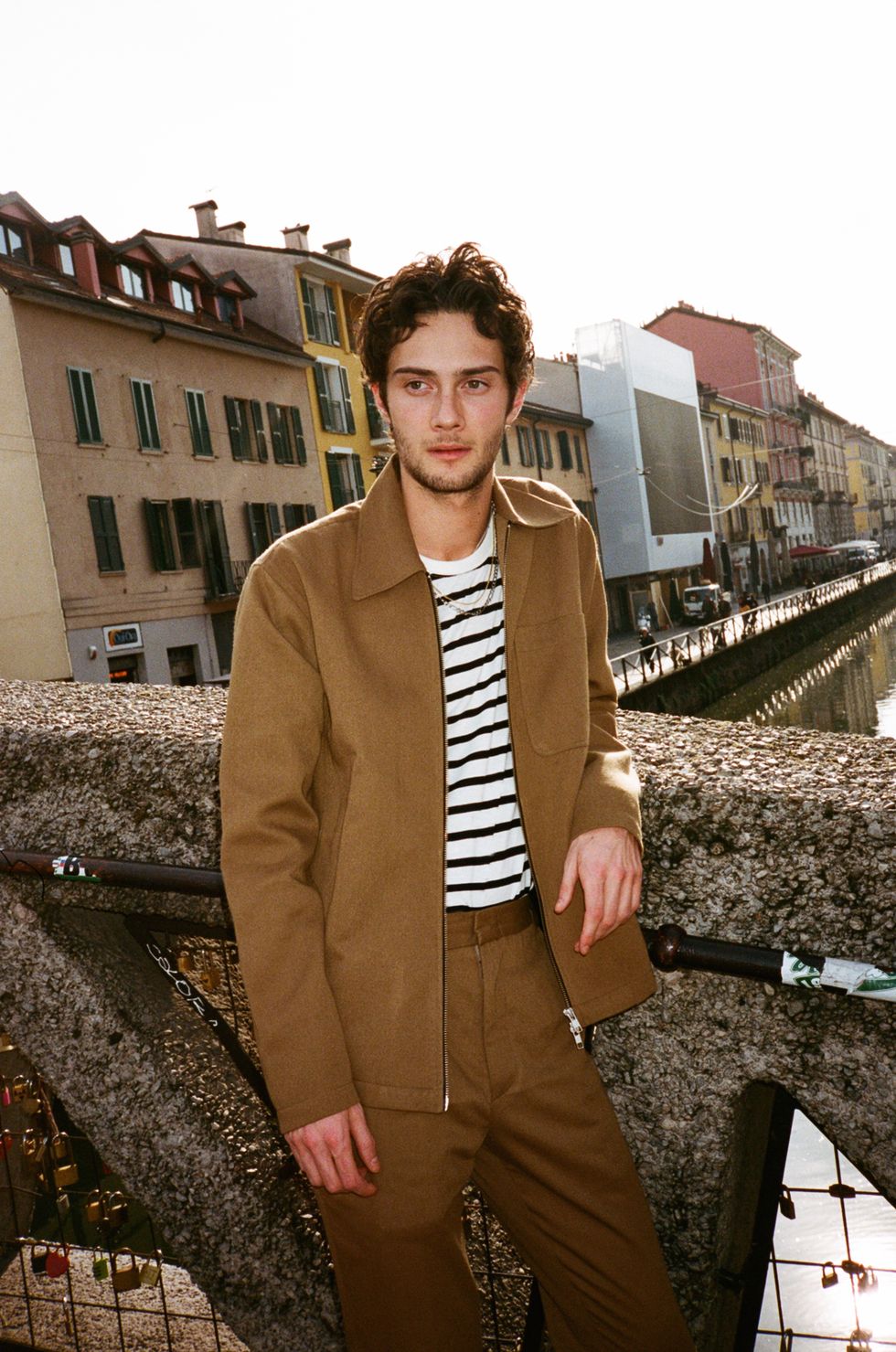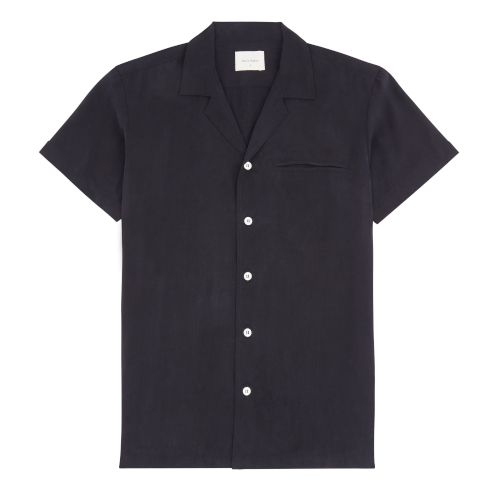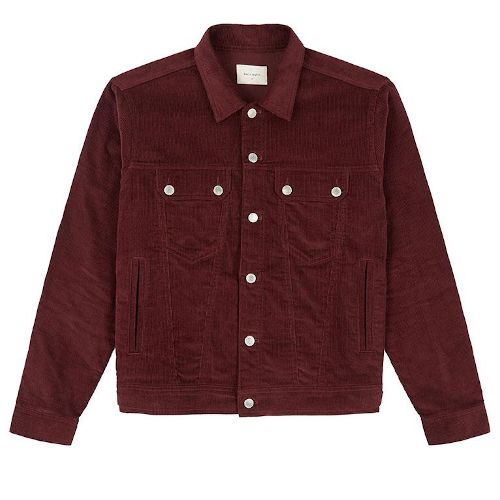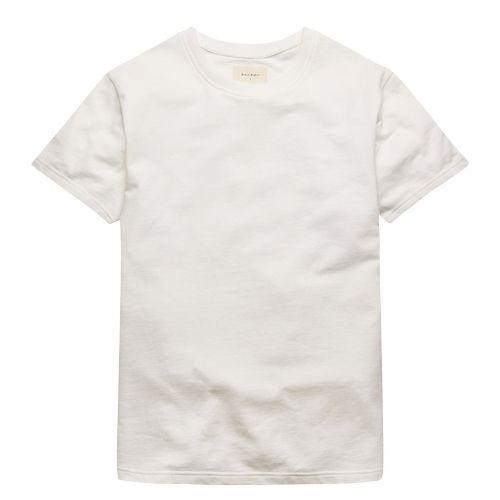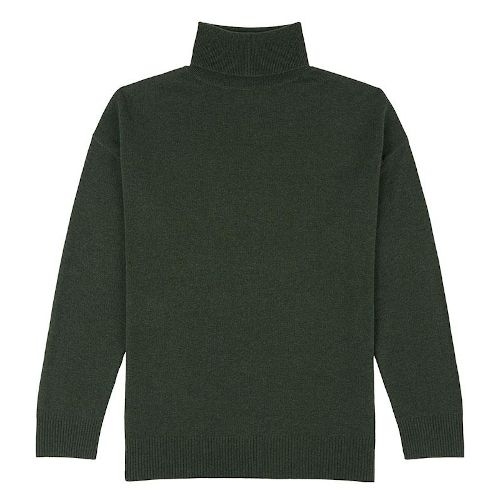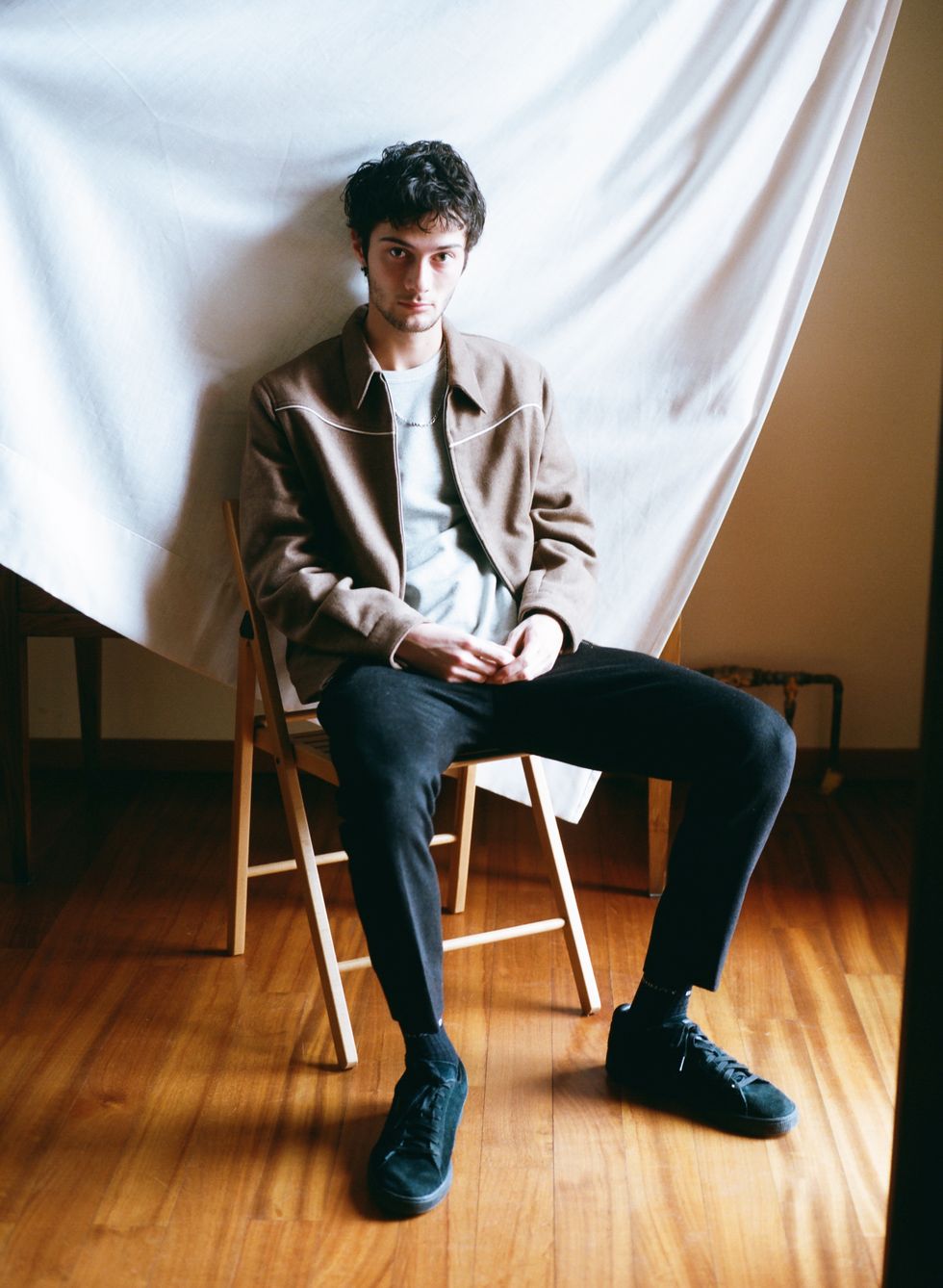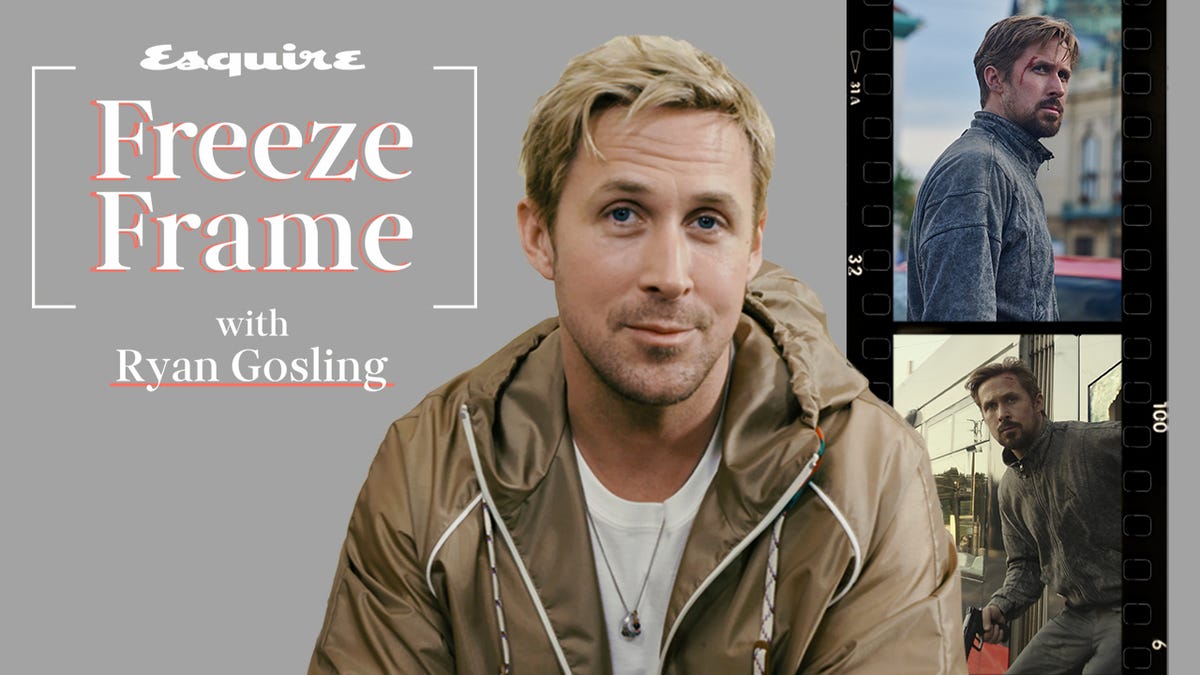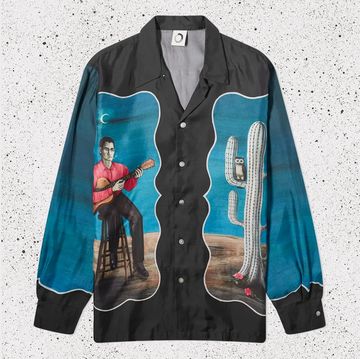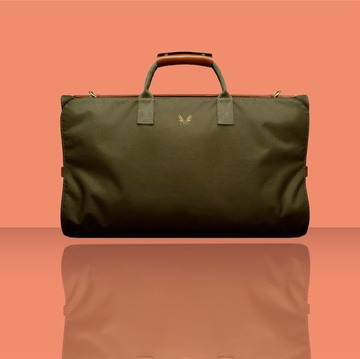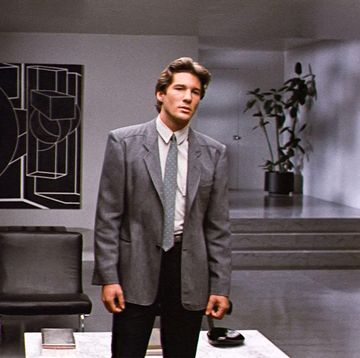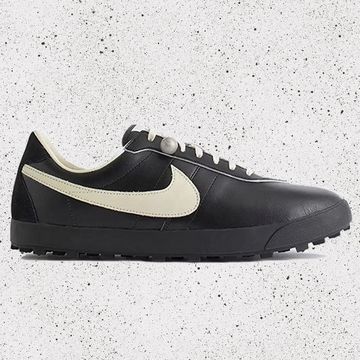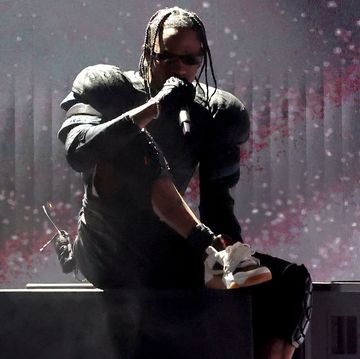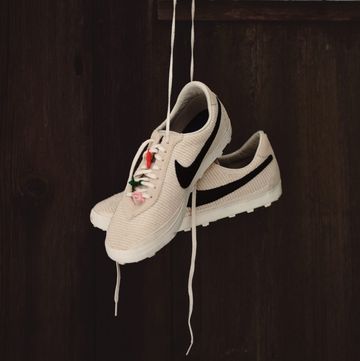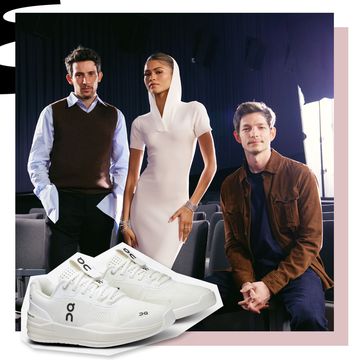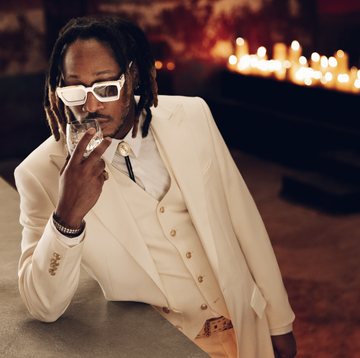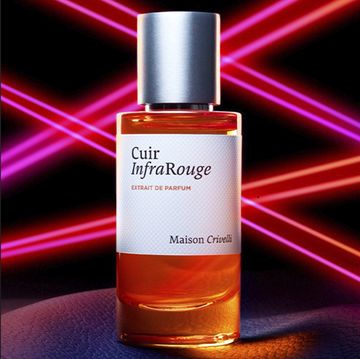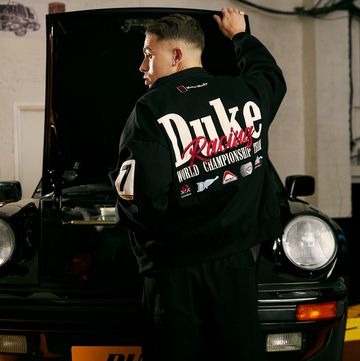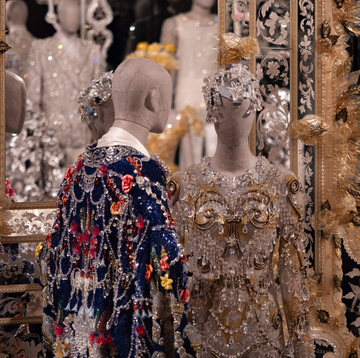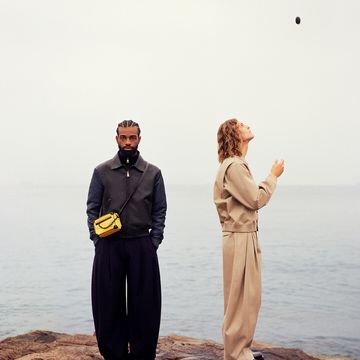Basic Rights is a provocative name to give a clothing company. A pair of trousers - even a really, really nice pair of trousers - is not Amnesty International. It's a lot of weight to expect a T-shirt to carry.
But for a brand with an attention-grabbing name, Basic Rights' ascension within menswear has been understated. The angle is appropriately simple. Founded by The Vaccines guitarist Freddie Cowan, it launched in 2016 in America and in the UK two years later. It does a small core collection of high-grade staples that lean towards updated 50s Americana - camp collar shirts, trucker and biker jackets, high-waisted trousers - plus collaborations with specialist manufacturers like Scottish Highland leatherworkers Aero Leathers and jersey specialists Merz B Schwanen, plus occasional one-off pieces.
This isn't the first brand built on a small core collection of well-crafted staples and won't be the last, but it's quietly built up a dedicated following and celeb-endorsed clout that sets it apart. Cowan first started thinking about starting a brand in New York, where he was building a studio and recording with The Vaccines. He was supposed to be focused on music, but he found himself becoming more and more distracted by clothes.
"I really wanted to get into quite utilitarian stuff, because I just had this fantasy about, like, a uniform," he tells me over the phone. Less time spent thinking about whether an outfit worked and what it said about him meant more time focused on his being creative, he reasoned.
"I wanted the perfect white T-shirt and I wanted like a perfect pair of trousers, but you know, a T-shirt was, like $100, for a Japanese production brand, trousers were 400 quid from my tailor," Cowan says. "And I just thought, this is not conducive to the uniform either, because I want these things to be able to get destroyed, sweated and dirty, I want to put them in the wash. And so it was that kind of balance that I didn't really feel existed."
So, one day he "had a Jerry Maguire moment, and I just started frantically typing out this kind of plan, this email". Soon after that, he met up with a mate's mate from uni, Jack Gove, to thrash it out properly. And yes, Cowan's fully aware of the irony in an attempt to stop himself obsessing about clothes ending in the foundation of a full-blown menswear brand.
"It was over pint on a Sunday afternoon, we just had this really, really good chat," Gove says. He's much more direct, attacking each new idea with vigour. The thrust was simple: nail down some hardwearing basics in a relaxed silhouette, source good quality materials, and keep the prices reasonable. "And by the end of it, he'd offered me a job."
Cowan seems happy to talk Big Questions, while Gove likes detail. They project a seat-of-the-impeccably-tailored-trousers approach to the whole endeavour. "There's no kind of master plan," Gove says.
Despite having been going for nearly four years, Cowan says it's only "quite recently I felt like, 'this is a goer'." He compares it to the moment Pete Townsend of The Who played the rock opera Tommy to a slightly bemused journalist, and realised that he could probably do with writing 'Pinball Wizard' to tie the thing together.
This summer, though, things went onto another plane entirely when Donald Glover wore a black, short-sleeved, camp collar Basic Rights shirt for that photoshoot of The Lion King's cast (plus a hole for Beyoncé to be Photoshopped into). On that Sunday morning, Gove woke up to find the picture and an 'OMG' emoji in the team WhatsApp group.
"We just couldn't make those [shirts] fast enough, which is both great and frustrating," Gove says. Cowan reckons getting "one of the coolest people in America" into their gear is a vindication of a minimalist approach.
"Let's let the personality be the colour, and let's let the clothes be like a blank canvas," he says. "I don't want the clothes to overshadow the personality of the wearer."
Their high-waisted trousers are a case in point. They're made to a pattern cut by David Chambers, veteran Anderson and Sheppard-trained tailor to pretty much anyone who's been anyone in British arts and culture for the last 50 years: David Bowie tapped him up for his Let's Dance-era power suits, and counted Paul McCartney, Jimmy Page, David Hockney, Peter Blake, Manolo Blahnik and Terence Conran among his clients. Plus, handily enough, Cowan's dad.
Chambers spent seven years solely cutting trousers at Anderson & Sheppard on Savile Row, so, as Cowan says, "he just knows his shit, and there's so many bullshit artists in the world". Accordingly, Basic Rights' trousers are the real deal, cut for comfort but still sleek and slim.
Influences come from beyond America and Britain too though: a trip to Mexico led Cowan to buy some flares from a local cowboy workwear shop, for instance ("suddenly, after a couple of weeks, it doesn't look so strange"). Plus, he says, mimicking menswear icons will only get you so far.
"I've come to realise that they're just really handsome guys," Cowan says. "Paul Newman, Marlon Brando, all those people: they're just really handsome."
Gove admits that Basic Rights is "quite a loaded name", and there are ongoing efforts to live up to it. The fashion industry is pilloried for its wastefulness - a 2017 report put the total carbon output of clothing in the UK at 26.2 million tonnes, or about the equivalent of every household driving the average car 6,000 miles a year - so Basic Rights is looking into recycled materials and already uses deadstock fabrics from high-grade manufacturers like the Kuroki Mill in Okayama, Japan, for most of its designs.
The leftover metres of high-grade fabric left unsold in mills would usually be burned, but Basic Rights buys up that excess to make its clothes. The ecological boost is twofold: the atmosphere isn't polluted with that much more incinerated fabric; and the water used during the process of dyeing freshly milled material is saved, which also reduces the risk of polluting water sources around factories. On top of that, Basic Rights gets high quality fabric cheaper than it would ordering it from the factory new. "It makes us kind of sleep a little bit more easily at night", Gove says.
Despite Gove's downbeat assessment that in fashion, "it's painfully obvious" that "suspiciously low prices really are suspiciously low for a reason," there's a reticence to sermonise. And that, in a nutshell might be why the name fits the brand after all: quietly confident, cleanly constructed, and getting the basics right.
Like this article? Sign up to our newsletter to get more delivered straight to your inbox
Note: we earn a commission for products purchased through some of the links in this story
